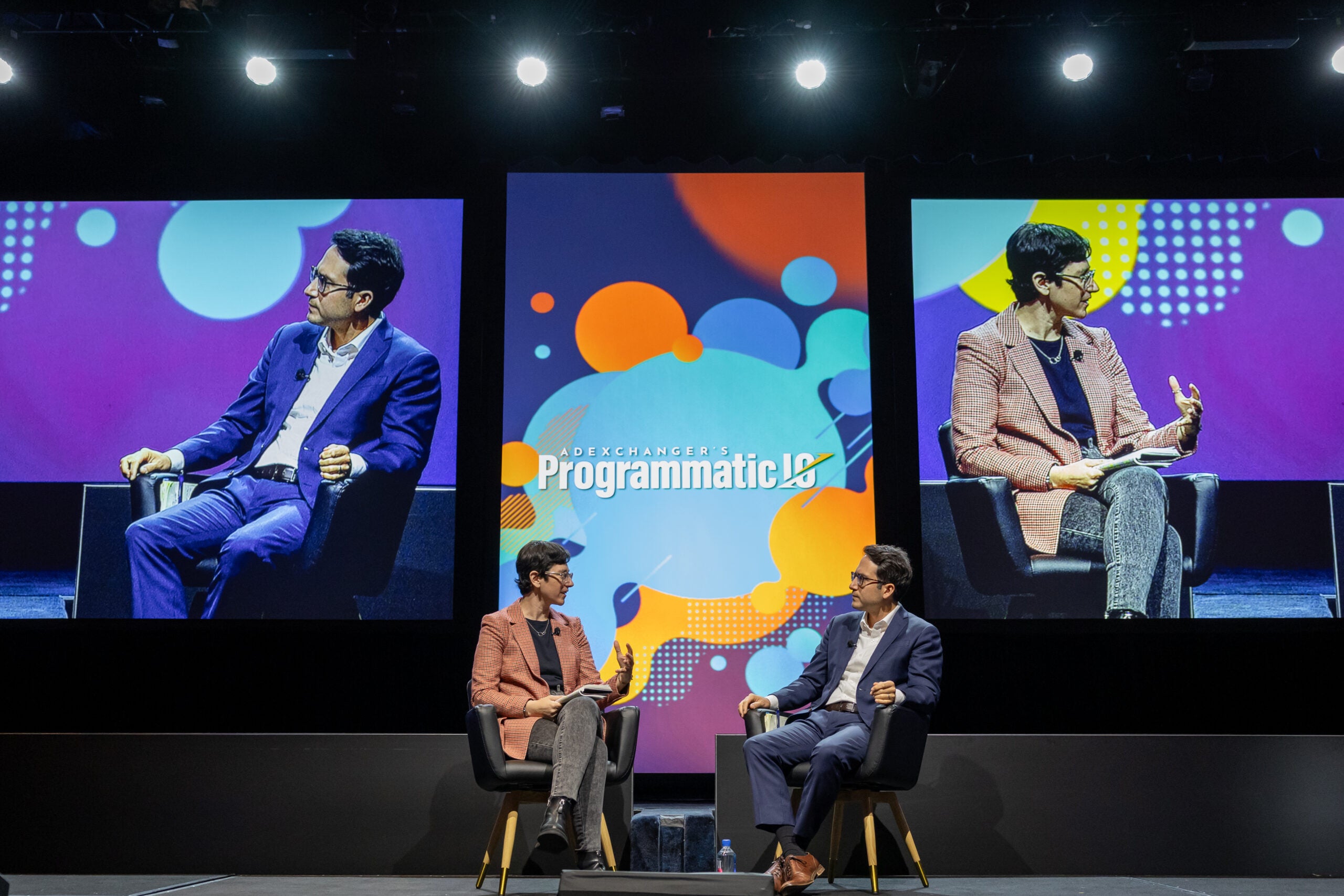Possibly advertisers need to reconsider their involvement in anything that monetizes the attention of children and teens online– particularly as it relates to new AI chatbots and software application.
That’s according to former FTC Commissioner Alvaro Bedoya, that shared a few of his qualms with digital advertising’s more controversial targeting tactics at Programmatic IO in New York City on Monday.
Bedoya called out social media sites and generative AI systems for aiming to keep youngsters engaged without fundamental safety and security guardrails in place. He additionally slammed digital advertising’s invasive monitoring of extremely delicate information for customers of every ages. He also cast shade on the concept of consent-based targeted advertising, arguing that the advertisement sector’s data-gathering practices must be totally reevaluated.
But Bedoya also had practical guidance for exactly how marketers can stay clear of attracting the displeasure of tech regulators at the state and government degree, particularly as AI items undoubtedly turn to ad-supported versions.
Keeping AI in check
Bedoya has some credibility to talk on these subjects as a long time personal privacy advocate in both the general public and private sectors.
He has actually worked as an elderly advisor to the American Economic Liberties task given that he and his fellow Democrat-appointed commissioner Rebecca Massacre were removed from their FTC settings by President Trump in March. Their shooting broke nearly a century of legal precedent relating to the FTC’s organizations– criterion that will be argued before the High court later on this year.
Prior to his 3 years as an FTC commissioner, Bedoya established Georgetown Law’s Fixate Personal privacy and Modern technology and was the very first primary guidance for the Senate Judiciary Subcommittee on Personal Privacy. He’s contributed to shaping federal tech policy and seen reams of research and expert statement on the prospective dangers of consumer-facing modern technology and media.
At Prog IO, Bedoya saved his toughest criticism for the lax safety standards of “parasocial” generative AI chatbots like OpenAI’s ChatGPT and Google Gemini, especially when it comes to how they’re marketed to and utilized by minors.
He called out circumstances of chatbots motivating young adults to commit self-destruction He likewise pointed to research study revealing that people of any ages think they can construct intimate links with chatbots which some children find chatbots to be a lot more reliable than other people
Many chatbot drivers allow solutions to represent themselves as psychologists or specialists or even launch their very own items with that said branding, Bedoya stated. However, human beings that function those jobs need professional certifications, and kids and teenagers in particular can be quickly fooled into assuming an industrial chatbot product belongs to a professional.
“Children, young adults and grownups are investing hours upon hours establishing what they view as meaningful connections with for-profit formulas,” he claimed. “That is ripe for abuse.”
Potential damages could be minimized by basic protections, Bedoya said, such as the chatbot sharing a relentless banner directing the individual to a self-destruction avoidance hotline if they’ve revealed suicidal ideation at any point in their interactions. LLM and AI companies could additionally show a persistent banner advising younger individuals that “this is not an actual human being speaking to you,” he claimed.
Bedoya rejected the idea that reining in chatbots’ harmful incentives with regulation might stifle technical innovation. He added that, while some usage cases for generative AI reveal assurance, “innovation is not an unalloyed good.”
And also if tech law slows at the federal degree under Head of state Trump’s administration, Bedoya stated he’s heard from the workplaces of several state chief law officers that have an interest in continuing the FTC’s deal with these matters.
With that in mind, Bedoya used the following guidance to the marketers in the area: “Be very mindful regarding opportunities to promote for young adults and minors on these platforms,” he stated, alluding to those AI chatbot and online search engine companies. “I would not wish to obtain blended in this technology when, in my view, the developers have actually not taken the most minimal steps to protect the youngsters who utilize it.”
Parasocial media
AI chatbots, like social media, yearn for individual involvement and attention. That’s their North Celebrity.
So, Bedoya stated, advertisers have a crucial role to play in guiding social media and generative AI firms far from hazardous methods.
Americans have expanded extremely distrustful of social media and Huge Technology titans and are outraged at how these business deal with youngsters, he claimed. He shared stories of audio speakers coming prior to the FTC to indicate concerning entirely unassociated regulatory issues, and then pulling him aside and urging him to “do something about social media sites” as a result of “the pain this is triggering in my children’ lives.”
The main point marketers can do to foster consumer trust in on-line experiences, he claimed, is to “believe long and hard” about how they spend money with companies that strive to “maintain teenagers online for longer and longer and longer time periods.”
When it involves generative AI experiences, Bedoya stated, marketing experts must avoid duplicating social media’s errors in optimizing involvement whatsoever expenses.
He claimed he understands, from a marketer’s point of view, the impulse to get to young target markets early and to develop brand loyalty prior to people in fact have discretionary earnings to spend.
However, he included, offered the bulk of research study that reveals extended social networks usage is detrimental to youngsters’ psychological health, as well as the “entirely wild research studies about AI chatbots,” it deserves reassessing anything to do with targeting children on the net.
“I do not believe, where we remain in 2025, that it’s a good concept,” he claimed.
Quitting consent
Marketers should not simply watch out for how they target young people.
Bedoya also pointed to stressing information collection methods for adults, such as mobile location tracking. He claimed the FTC checked out cases “where there would be astonishingly described information generated about individuals based upon specific geolocation.”
He mentioned examples as severe as tracking whether an individual goes to a particular endocrinologist’s office, then tracking whether they saw a drug store right away later. “This is shateringly sensitive details that these business were generating and selling to the highest possible prospective buyer,” he claimed.
He included that individuals usually “had no chance to express any type of kind of authorization,” neither could they eliminate their data or profiles.
Undoubtedly, placing the obligation on consumers for choosing right into data sharing might also have to be reconsidered in the long term, Bedoya claimed.
“The permission version itself is bothersome,” he stated. “There’s just a lot of yeses and noes individuals have to address.”
Suggested AI Advertising And Marketing Equipment
Disclosure: We may make a commission from affiliate web links.
Original coverage: www.adexchanger.com


Leave a Reply